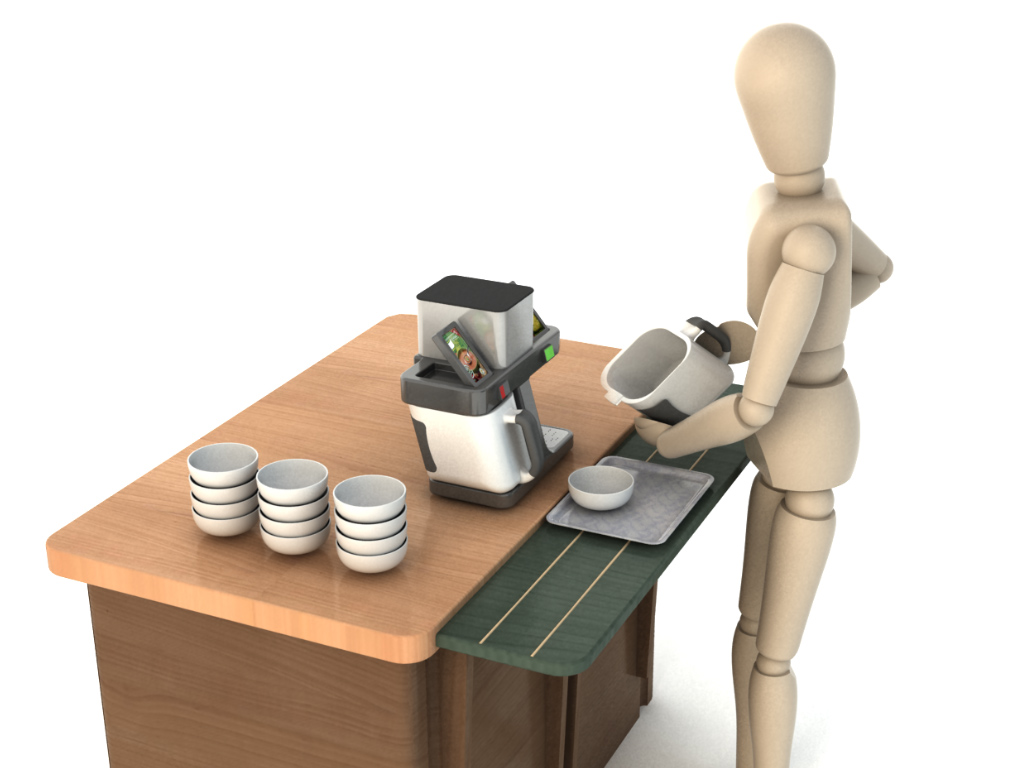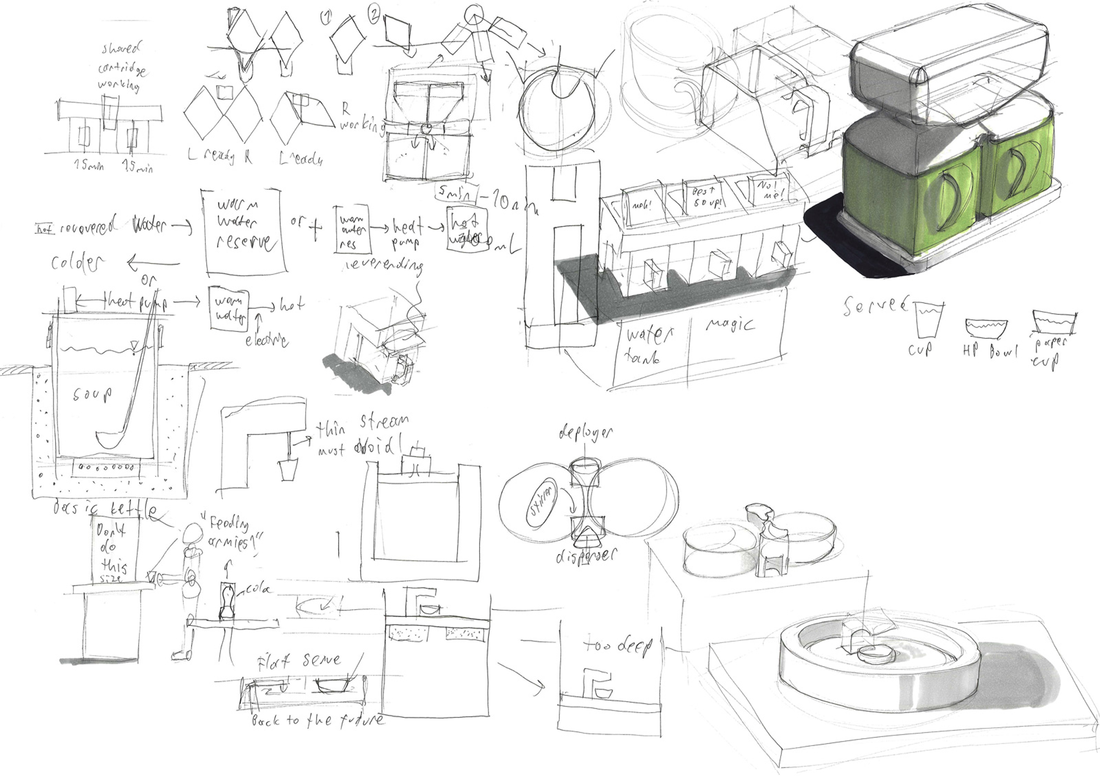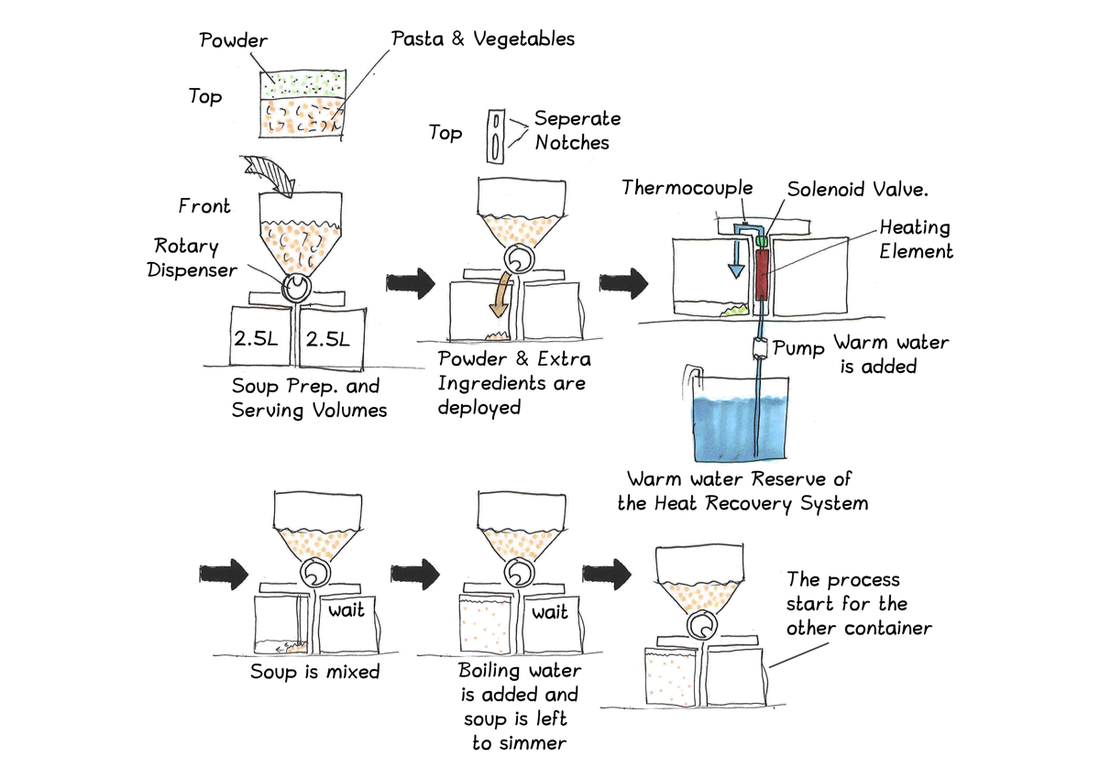DUO Soup Kettle
Veneca, TUDelft
DUO is an automated soup maker to improve the process of soup making and serving, in order to reduce food & energy waste and increase the profitability of selling soup in the catering sector. I've delivered the product concept as part of the Advanced Concept Design course in my MSc program at TUDelft.
Due to the increasing awareness of consumers on the topic of sustainability, our client Vereniging Nederlandse Cateringorganisaties (Veneca) previously initiated a research to reduce the carbon footprint of the catering sector. (You can check the report here). It was found out that soup had the largest carbon footprint compared to other food items served at catering locations.
The assignment was to investigate why soup had a much larger carbon footprint, and come up with a concept to reduce the carbon footprint of serving soup. It was also noted that soup had a strong cultural background in the Netherlands, and Veneca wanted to keep the "Home made" identity with the soup they serve.
Through the project:
- I did a cultural analysis on the perception of automated soup serving machines.
- I investigated and analysed the work flow of a catering employee via interviews and "shadowing".
- I created a "do and don't" list as a guideline to design a soup maker for the Dutch consumer.
- I investigated health regulations on food preparation and serving.
- I did technology research on the topic of soup makers, and heat recovery systems.
- I did a thermodynamic analysis to reduce energy needed to serve soup.
- I calculated parameters (Volume, heating power, cook time...) of a soup maker for the target catering site.
- I did a short ergonomic study on the topic of handling hot foods (Avoiding scalding, spills, optimizing weight).
- I did a long term cost savings analysis of my proposed design.
Due to the increasing awareness of consumers on the topic of sustainability, our client Vereniging Nederlandse Cateringorganisaties (Veneca) previously initiated a research to reduce the carbon footprint of the catering sector. (You can check the report here). It was found out that soup had the largest carbon footprint compared to other food items served at catering locations.
The assignment was to investigate why soup had a much larger carbon footprint, and come up with a concept to reduce the carbon footprint of serving soup. It was also noted that soup had a strong cultural background in the Netherlands, and Veneca wanted to keep the "Home made" identity with the soup they serve.
Through the project:
- I did a cultural analysis on the perception of automated soup serving machines.
- I investigated and analysed the work flow of a catering employee via interviews and "shadowing".
- I created a "do and don't" list as a guideline to design a soup maker for the Dutch consumer.
- I investigated health regulations on food preparation and serving.
- I did technology research on the topic of soup makers, and heat recovery systems.
- I did a thermodynamic analysis to reduce energy needed to serve soup.
- I calculated parameters (Volume, heating power, cook time...) of a soup maker for the target catering site.
- I did a short ergonomic study on the topic of handling hot foods (Avoiding scalding, spills, optimizing weight).
- I did a long term cost savings analysis of my proposed design.




